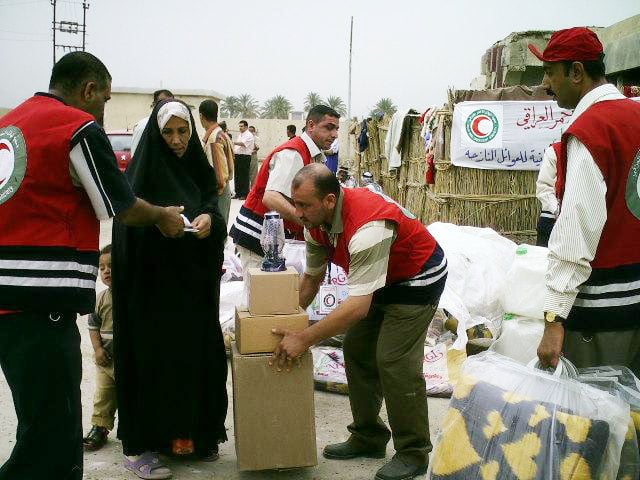The problem of internally displaced persons (IDPs) and Iraqi refugees in neighbouring countries is likely to grow into a regional and international problem because the government appears to have no clear policy to tackle it, a member of parliament (MP) said on 12 May.
"The government's obvious inability to solve the problem of IDPs and refugees could lead to serious regional and international problems, as there is no clear and comprehensive policy to get them back into their homes," MP Abdul-Khaliq Zankana, head of parliament's Displacement and Migration Committee, said.
"These problems will hit Iraqi security and society. The absence of support and appropriate solutions will leave them easy prey to militias and armed gangs inside Iraq and [make them into] possible recruits to intelligence services outside Iraq," Zankana said.
Since the beginning of 2008, Zankana's committee has demanded a comprehensive, long-term government policy and budget to tackle the problem, proposing that 3-5 percent of national oil revenues be set aside to fund programmes to assist IDPs.
"All these demands and appeals have vanished," he said, threatening that he and his committee members could resign "because there are no appropriate measures to solve this problem".
Iraq's displacement problem dates back nearly 25 years and is the result of some of former president Saddam Hussein’s policies, and three wars - the 1980-88 Iraq-Iran war, the first Gulf War of 1991 and the 2003 US-led invasion of Iraq.
According to the UN Refugee Agency (UNHCR), over 4.2 million Iraqis have fled their homes during this period - most since 2003. Of these, over 2 million are living as refugees in neighbouring countries - mostly Syria and Jordan - while 2.7 million are IDPs.
On 9 May, UNHCR launched an appeal, after pointing out at a donor meeting in Geneva that it could find itself forced to reduce or suspend a number of its programmes - covering medical, food, education and direct financial assistance - unless additional support were forthcoming.
In January 2008, the UNHCR appealed for US$261 million for its Iraq-related operations inside and outside the war-torn country but it has so far received only US$134 million. It is now appealing for US$127 million.
For an overview of the Iraqi IDP/refugee situation and policy recommendations, see the Refugees International website.
sm/ar/cb
This article was produced by IRIN News while it was part of the United Nations Office for the Coordination of Humanitarian Affairs. Please send queries on copyright or liability to the UN. For more information: https://shop.un.org/rights-permissions




